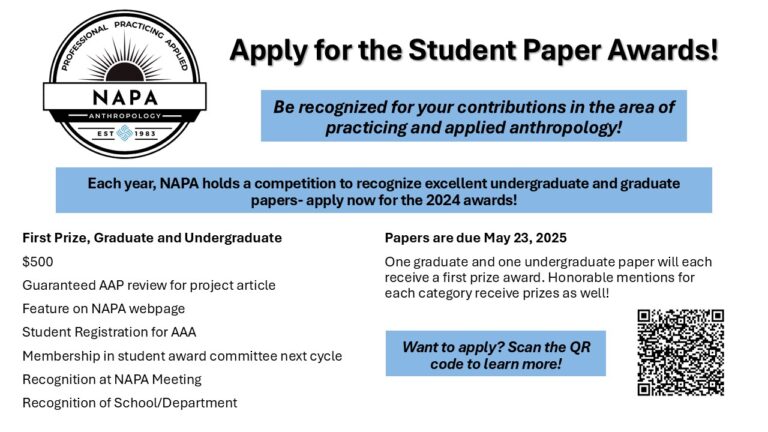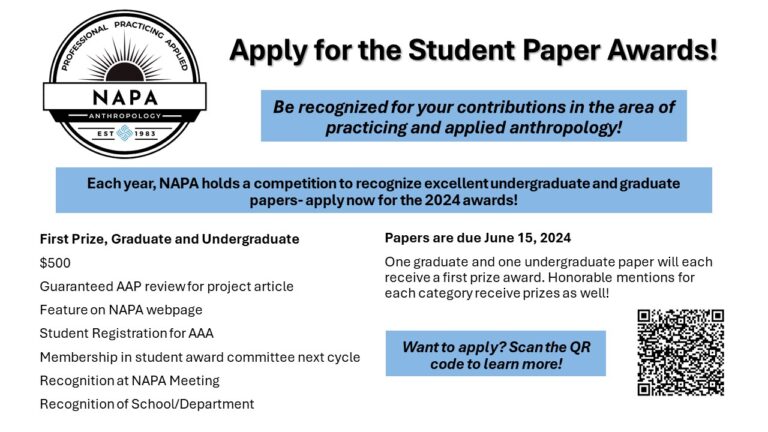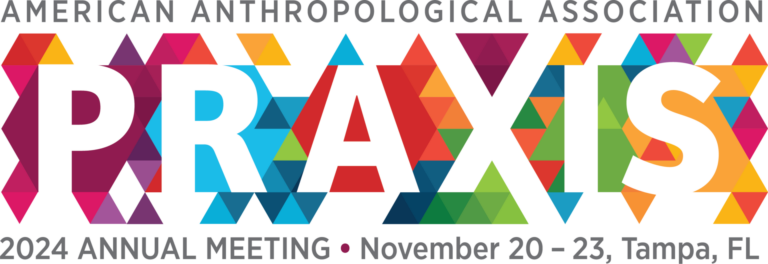National Association for the Practice of Anthropology
NAPA Launches Interview Series on LinkedIn
NAPA has launched an informative new interview series on the NAPA Linked In site. This bi-weekly series will feature brief interviews with prominent anthropological practitioners. The goal is to highlight what NAPA and its members are doing, and to showcase the diverse lines of work in which practitioners are engaged.
The first interview in the series, appearing July 2, 2013, can be found here.
Interviews are conducted by two NAPA Communications Committee volunteers, Kristin Keller and Nicole Conand (brief bios on both appear below). Interviews will also be archived.
The first set of interviews will involve exhibitors from the NAPA/AAA Career Expo held during the 2012 AAA annual meeting. Although interviewees themselves will not necessarily be available to respond, we encourage your comments and feedback on the interviews, and we look forward to your thoughts and suggestions on the series as it progresses.
Interviewer Bios:
A student of applied anthropology at San Jose State University in California, Kristin Keller is interested in exploring issues of social justice and immigration. She conducted research at Occupy Oakland as part of a multi-sited group project that led to the production of a free informational pamphlet to better educate the public about the goals and efforts of Occupy activists in California. Kristin is currently working with staff at the International Rescue Committee in Oakland to enhance volunteer training and cultural orientation support to better meet the needs of recently resettled refugees.
Nicole Conand holds an M.A in applied anthropology from San Jose State University. A Behavioral Science and Anthropology undergraduate double major, Nicole has contributed to several sponsored projects intended to improve communities and services, such as the Healthy Eating Active Living project supported by Kaiser Permanente, and the Silicon Valley Sparkplugs Project funded by the Knight Foundation. Currently working as a freelance ethnographer, Nicole is interested in the role of media in data representation in order to reach wider audiences for impactful community change.



